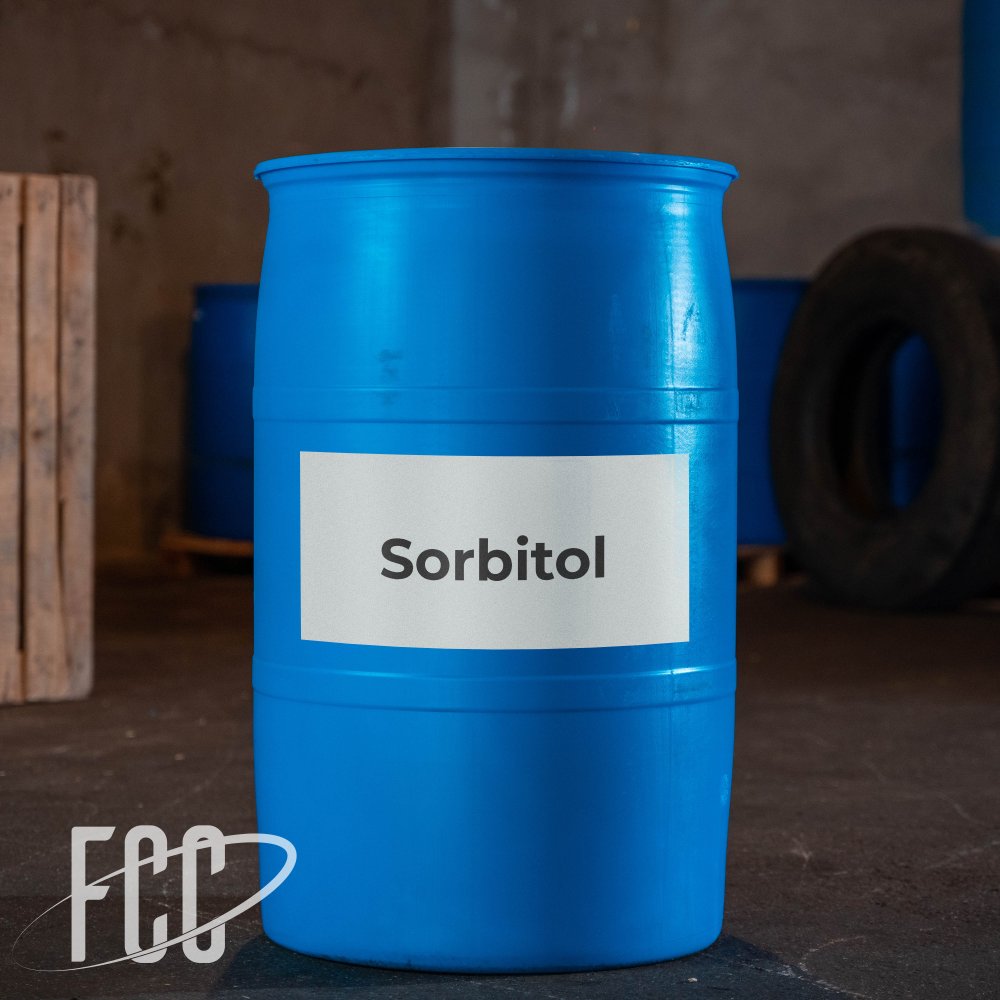Sorbitol

Appearance: Clear and colorless liquid
Packaging: 300 kg metal drums
Molecular Formula: C6H14O6
Sorbitol is a sugar alcohol produced by the reduction of glucose. The compound is found mainly in corn and fruits such as apples, prunes, peaches, and pears. Metabolism of D-Sorbitol has been found to generate superoxide anion radicals in mitochondria.
Solubility: It is soluble in water (182 mg/ml at 20° C), glycerol, propylene glycol, methanol (slightly soluble), ethanol (slightly soluble), acetic acid (slightly soluble), phenol (slightly soluble), acetamide (slightly soluble), DMF, isopropanol, butanol, cyclohexanol, acetone, pyridine, hot alcohol (quite soluble), and cold alcohol (sparingly soluble). Insoluble in ether. Almost insoluble in most other inorganic solvents.
Application
- In the Food industry: Sorbitol is a sugar substitute often used in diet foods (including diet drinks and ice cream) and sugar-free Chewing gum.
- In the Pharmaceutical industry: As the excipient for processing Vitamin C, injection, humectant, and stabilizing agent.
- In the Personal care industry: As humectant for toothpaste, with moisturizing protection and cool, comfortable, and sweet taste, anti-dry reagent for cosmetic, surface active agent.